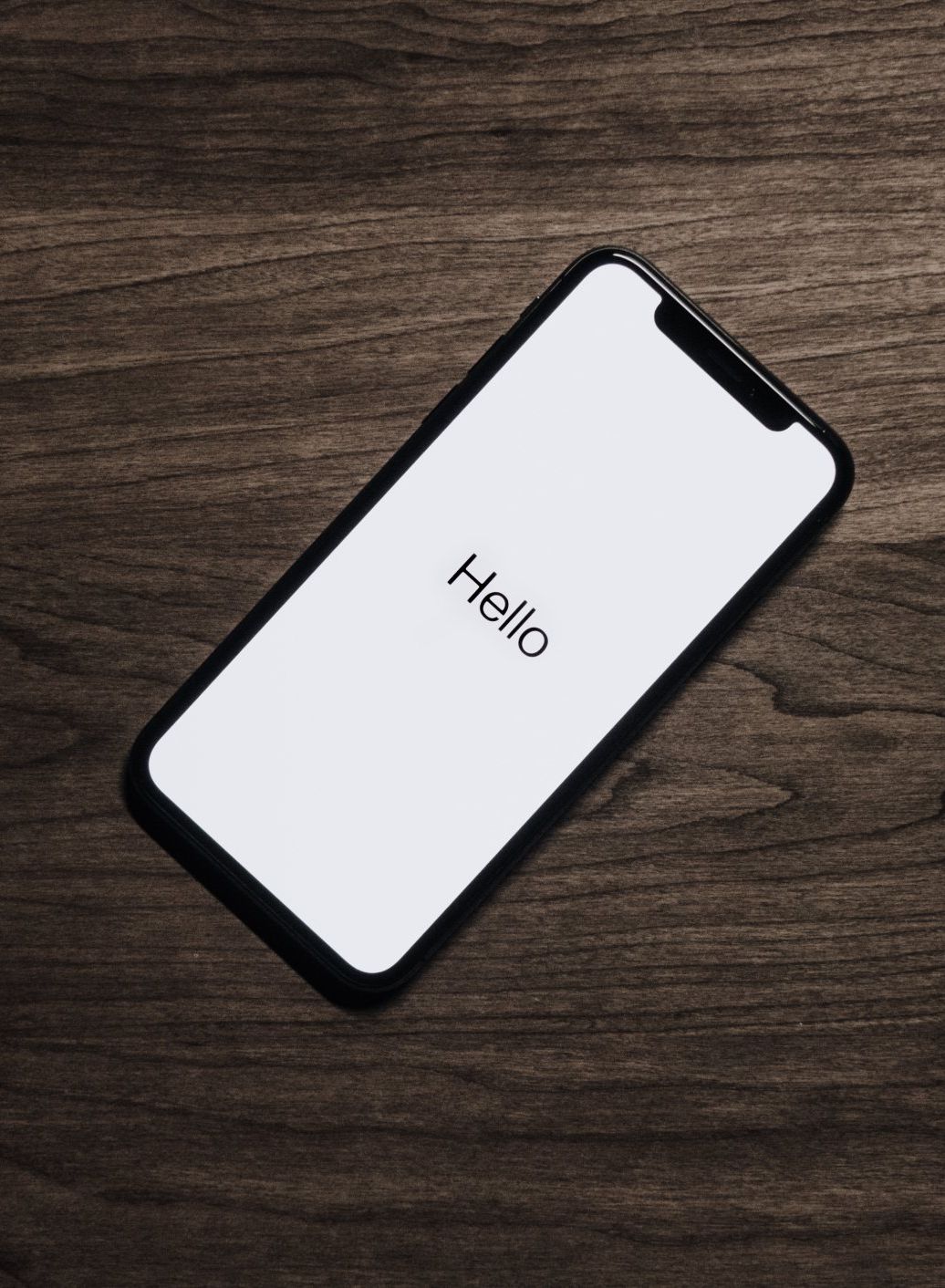Working with E4 Recruitment
Agency Handbook
Welcome to the team! We’re excited to have you onboard. Your role is important as you provide care to those in need. Please take a moment to review this digital handbook—it has everything you need to get started.
About E4 Recruitment
Since 2012, we’ve been connecting skilled healthcare staff with facilities in need of extra skill support. Over the years, we’ve grown into one of Australia’s leading healthcare staffing experts, and now we’re on a mission to become the most recommended in the industry.
Our focus is on exceptional service, built on clear, honest communication. With a dedicated consultant by your side, we’ll match you with the right opportunities to suit your skills and goals.
The recruitment industry can often fall short on it's promises, but we’re committed to doing things the right way—because everyone deserves dignity and quality care.

Aged Care & Nursing Experts
Two Divisions, One Trusted Partner
Let’s break it down….
Aged Care
Covering permanent recruitment, contract nurses, and agency staffing for aged care facilities nationwide.
Nursing & Midwifery
Specialising in placing travel nurses into regional & remote healthcare services, including public hospitals, Aboriginal health services, and multi-purpose health facilities.

Aged Care Quality Standards
The Ageing and Disability Commission have training resources designed to improve the detection and response to abuse, neglect and exploitation.
We recommend that you complete Module one training, read the case studies and resources to better equip yourself with the skills to confidently and competently identify and respond to concerns of abuse, neglect and exploitation.
E4 Standards
We have high standards at E4 on behaviour, hygiene, appearance and attendance.
It’s very important that our employees attend every shift with the following:
- A clean and tidy E4 uniform (E4 polo or scrubs)
- Appropriate dark coloured trousers (No skirts, jeans, tights, gym pants etc.)
- E4 ID Badge to be worn at all times (with E4 lanyard)
- Minimal or no jewellery
- Hair well-groomed/tied back if longer than shoulder length
- Fingernails to be a suitable length for nursing work (no long nails or nail polish)
- Fully enclosed shoes, non-slip sole.
When you’re working a shift or contract and you find yourself without any tasks assigned, please ensure that you are:
- Seeking extra tasks or duties to do from the RN or Senior Management in charge
- Spending time with residents or patients, getting to know them, speaking with them or providing emotional care.
Our Policies and Procedures
Workplace Behaviours Policy
Complying with federal or state laws relating to discrimination, sexual harassment, bullying and victimisation.
Ongoing compliance
Guidelines around current flu vaccinations, up-to-date records and vaccinations.
Drugs & Alcohol Policy
Ensuring a zero tolerance to being under the influence, and reporting concerns to management.
Social media policy
Exercising good judgement and respecting confidentiality when communicating on social media.
Confidentiality Policy
Maintaining confidentiality when dealing with valuable information which belongs to E4 clients or E4.
Work Health & Safety
Promoting a safety culture to effectively provide a safe and healthy work environment.
Modern Slavery Act Policy
Committed to combating modern slavery by ensuring ethical practices and compliance within our operations, supply chains and by our staff.
Personal leave and sick leave
If you wake up and are feeling unwell, sick or injured prior to a shift, please notify us straight away via a phone call.
Text messages and emails aren't accepted as they can be potentially missed. We need to notify the facility straight away and try and find a replacement. We also ask that you give as much notice as possible so we can try and fill your shift so the facility isn't left without staff.
Whilst you don't have any obligation to disclose the nature of your illness or injury, providing that information alongside any expected approximate length of absence from work would be appreciated.
It's also incredibly important, especially in the current healthcare climate, that as an employee you don't turn up to work 'unwell' and inherently placing other staff members and residents at risk of illness.
For any COVID-19 related symptoms, you will be made unavailable and only made available again once a COVID test is taken, a negative result is received and presented to us. We want to keep everyone as safe as possible.


Timesheets and Payroll
We pay weekly, every Friday!
List of Services
-
Add your timesheets to Entire OnHireList Item 1
Timesheets need to added to your Entire OnHiree app after every shift.
-
Fill them accuratelyList Item 3
Have the timesheet filled in full for every shift you have worked with the correct date, time and breaks taken.
-
Timesheets need to be signedList Item 4
Have every shift approved by an authorised supervisor on the Entire OnHire app.
Tips to help you perform your best on shift
Be prepared and stay ready
Preparation is key. Make sure you have everything you need before starting your shift—ID badges, pens, PIN numbers, or any other essential equipment. Being organised not only creates a great first impression but also prevents you from feeling unprepared or wasting time searching for basic items as the "new nurse or midwife."
If you're unsure about what you'll need, don't hesitate to ask for guidance. Starting off on the right foot includes seeking a thorough handover and orientation.
Get a proper handover
You have every right to be shown around the unit, briefed on special procedures, and informed about policies specific to your workplace. If no one offers an induction, take the initiative and ask for one.
Use the handover time wisely—ask questions and engage with the staff finishing their shift. This is your opportunity to understand your patients' conditions and needs, ensuring you can provide professional and effective care. Remember, a proper handover is essential for delivering safe and high-quality care.
Stay active and professional
If you find yourself with downtime during a shift, avoid the temptation to scroll through your phone. Instead, look for ways to contribute—there’s always something to do in a healthcare setting. Your phone should remain out of sight, and your focus should be on adding value to the team and the facility.
Stay safe, stay sensible, communicate
Keep things simple and professional. Don’t take things too personally, but always speak up if you need help or clarification. Use your assessment skills and never take on tasks you’re unfamiliar with.
If you’re not trained or confident in administering certain medications or performing specialised procedures, it’s important to acknowledge this. It’s unfair to both you and your patients to take on tasks beyond your scope of practice. Often, the most appreciated care is the simplest—providing comfort, respect, and the human touch that healthcare is built on.
Trust your training
Remember, you are a trained professional with a solid foundation in nursing. Trust your instincts and skills. Assess your patients, monitor their vital signs, and use your observational skills to identify any changes in their condition.
Communication is key
Strong communication is essential, especially when working in a new environment. Ask questions, document everything thoroughly, and voice any concerns you may have. Consultants and senior staff are there to support you, so don’t hesitate to reach out for help when needed.
Modest dress in communities
Agency staff in Aboriginal and Torres Strait Islander communities should dress modestly at all times, including off duty, to respect local cultural values. Members have raised concerns about inappropriate clothing, such as low-cut tops or very short skirts/shorts, in these conservative settings.
Be respectful and understanding
Expect to be treated with courtesy and respect, but also understand that permanent staff may be under different pressures than you. They may not always have time to get to know you personally—don’t take this to heart. Focus on building professional relationships and doing your best in the role.
We’re here to support you
If you need assistance or have concerns, don’t hesitate to contact us. We’re here to help and support you as much as we can.
By staying prepared, proactive, and professional, you’ll set yourself up for success in any new setting.
Tips for visiting Aboriginal and Torres Strait Islander communities
1. Understand the Diversity
Australia is home to over 260 different Aboriginal and Torres Strait Islander groups, each with distinct languages and cultures. Treat each group as unique, just like visiting different countries.
2. Follow Local Rules
Communities may have specific rules about areas you can or can't enter, including places of cultural significance.
Restrictions may apply to fishing, swimming, or areas limited to male or female visitors. Check before you go.
3. Dress Modestly
Wear loose-fitting, long clothing (below the knee), such as shorts, skirts, pants, or dresses. Wear shirts or T-shirts with sleeves. If swimming, cover swimwear with a T-shirt and shorts. Choose clothing that won’t cause discomfort if you sit on the ground.
4. Photography Etiquette
Photography may not be permitted in some communities. Always ask before taking photos. Photographing children requires permission from parents or guardians. Never take photos of sacred sites without permission.
5. Travel Permits
Some communities require entry permits, similar to visiting National Parks.
Permits help ensure visitors respect the community’s property, privacy, and cultural beliefs.
6. Respect and Behaviour
Observe others and follow their lead regarding customs like handshakes and eye contact. Direct questioning is uncommon and may be seen as impolite. Keep questions simple if necessary.
7. Protect Cultural Sites
Don’t remove rocks or objects from Aboriginal land or waters without permission. Disturbing cultural sites is disrespectful and prohibited by law.
8. Stay Open-Minded
Listen to your guide and follow their instructions. Be aware that customs and conversational styles differ between groups.
By following these tips, you can ensure a respectful and enriching experience while visiting Aboriginal and Torres Strait Islander communities.
Feedback
Your thoughts and suggestions play a crucial role in shaping our team and ensuring the best experience for all staff members and clients. Whether it's insights on overall impressions, specific to a facility, a consultant or suggestions for improvement, your input is highly appreciated. We encourage you to share any thoughts you may have that will assist us in our goal to be the most valued healthcare recruitment agency.


